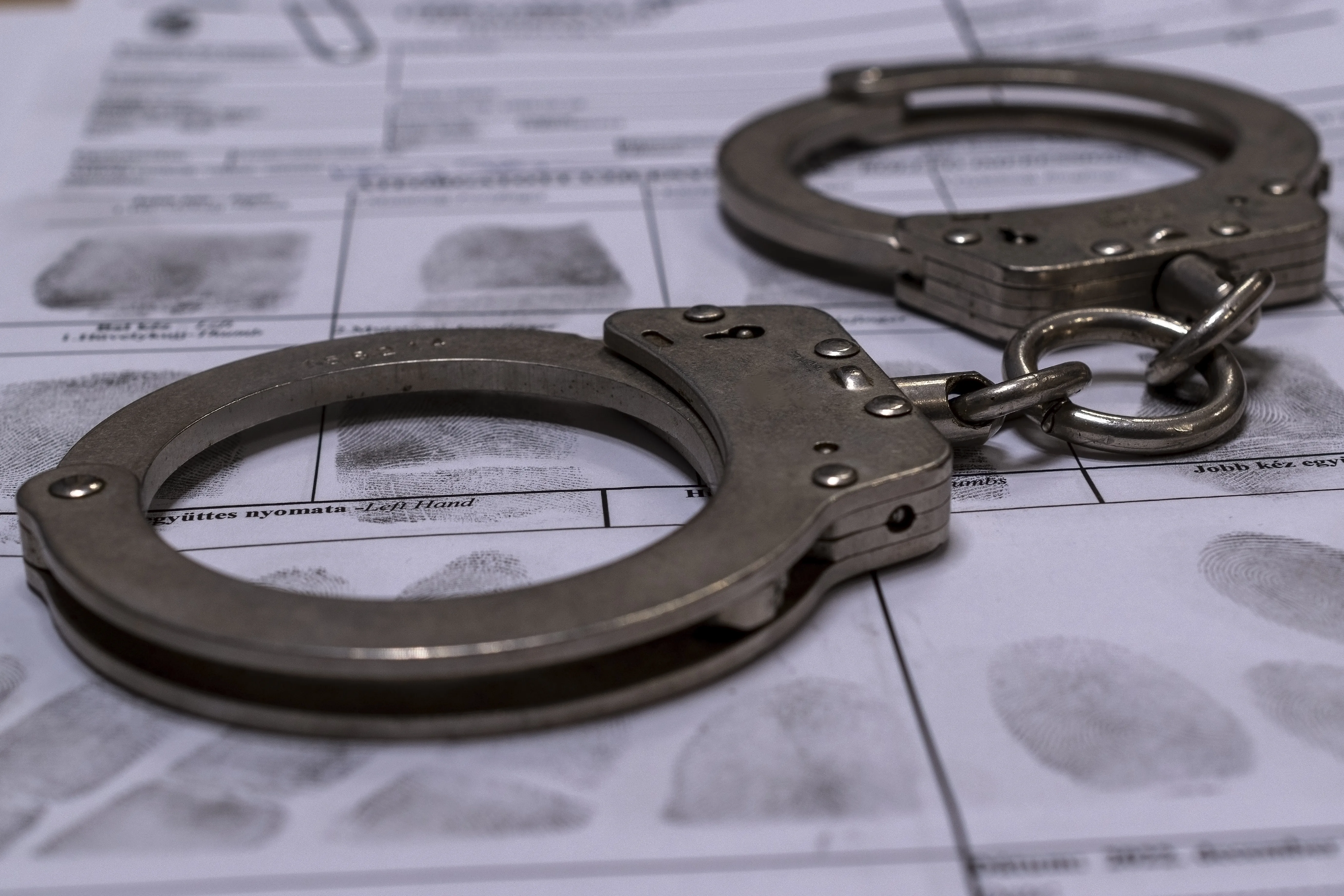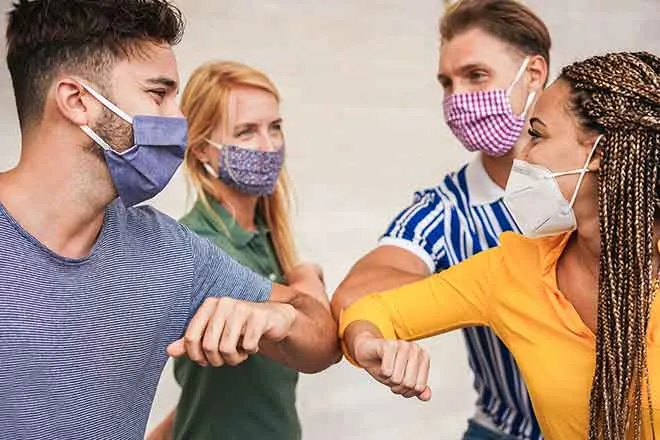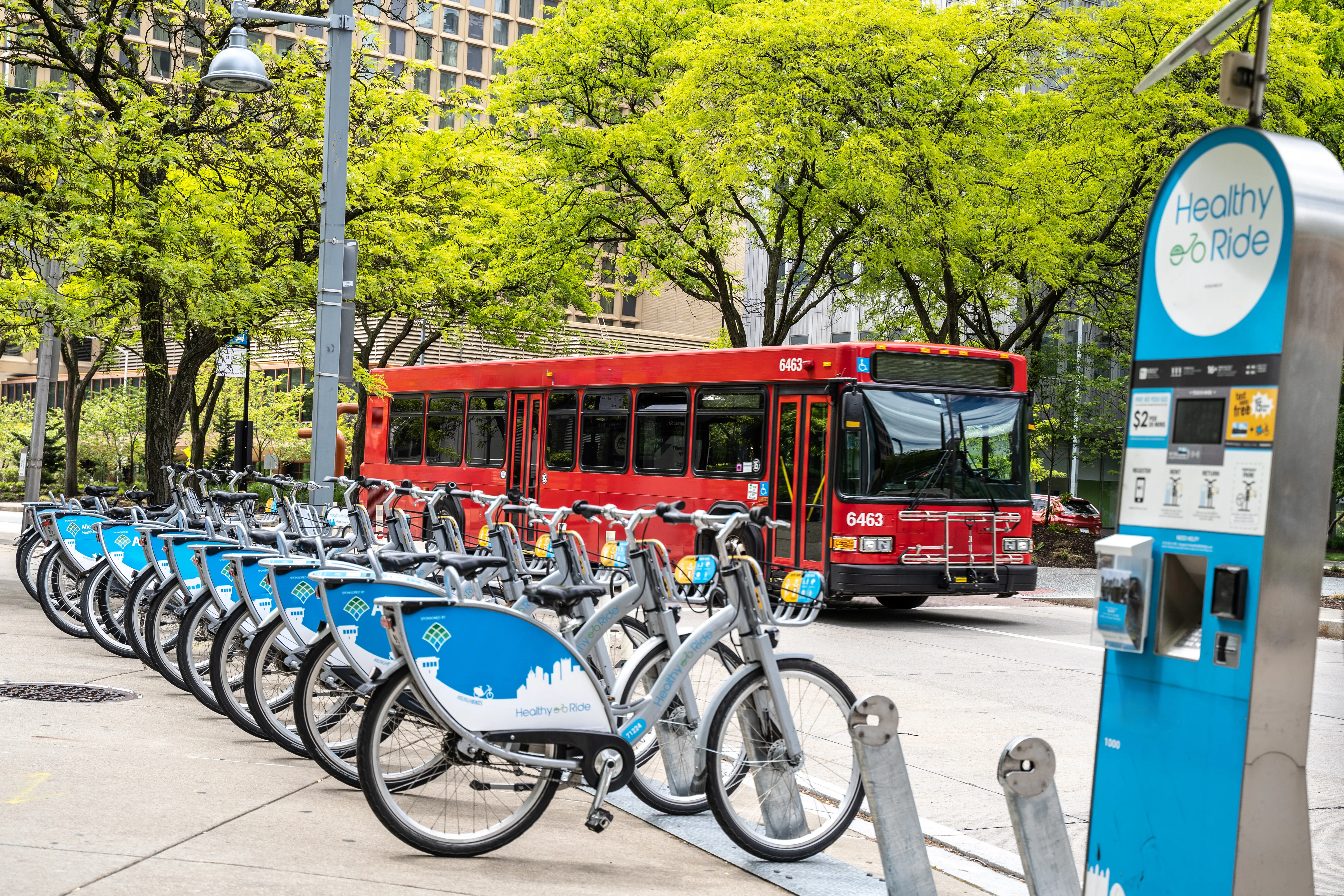
Daily Audio Newscast - November 1, 2024
News from around the nation.
Kamala Harris calls Donald Trump's comments on women 'offensive to everybody;' North Dakota tribal outreach leaders crank up messaging to voters; Survey: Ohioans feel strongly about education, worker protections; 2024 election could be decisive for Arizona's clean energy future.
Transcript
♪♪ -The public news service daily newscast, November the 1st, 2024.
I'm Mike Clifford.
Kamala Harris said Thursday Donald Trump's comment that he would protect women, whether the woman like it or not, showed that the GOP presidential nominee does not understand women's agency, their authority, their right, and their ability to make decisions about their own lives, including their own bodies.
That from "The Guardian."
They report Trump appointed three of the justices to the Supreme Court who formed the conservative majority that overturned federal abortion rights.
And as the fallout from the 2022 decision spreads, Trump has been taking to boasting at public events that he would protect women and make sure they would not be thinking about abortion.
Meantime, political rallies and large-scale get-out-the-vote events might conjure images of a packed arena in a major city.
But in states like North Dakota, groups that connect with indigenous voters also are bridging key messaging with entertainment.
This week, several hundred people packed a venue at the Spirit Lake Casino in St.
Michael, where they were treated to a mix of popular music from well-known regional acts like Scotty Clifford to traditional drum music.
It was all part of the Snag the Vote Tour moving through the region.
Kirsten Kavanagh of North Dakota Native Vote says between the guitar solos and singing was a reminder to participate in the election.
We're working on getting that information for the voters to just basically have their voices heard.
In the 2018 midterms, North Dakota saw a surge in voter turnout in Indian country after the state adopted a new restrictive voter ID law, adding to longstanding barriers for people living on reservations.
Rallies back then also featured big-name entertainers, but the turnout regressed in 2020 with the effects of COVID-19.
I'm Mike Bowen.
Next up, Ohio voters are encountering new voting restrictions this election season, including stricter ID requirements and limited access to ballot drop boxes.
The survey shows opposition to cuts in public sector jobs and a split on whether to keep the U.S. Department of Education, and the pollsters say the responses provide a window into voter sentiment on key policy areas.
Dan Hines, a school board member and Ohio public school teacher in the Cleveland area, voices strong support for the federal agency, which many see as a protector for educational equality.
The federal Department of Education is the federal agency that ensures that Americans, regardless of who their parents are, regardless of what state they live in, that all Americans have equal access to high-quality public education.
In the survey by the polling firm Red America, Blue America Research, 57 percent of people said they opposed getting rid of the Department of Education, while 43 percent would do away with it.
Farah Siddiqui reporting.
Respondents showed clear concern for preserving labor protections, 62 percent opposed to reducing wages and protections for essential public sector workers.
This is Public News Service.
Next to Arizona, ground zero for the 2024 election, but also sits on the front lines of the climate crisis as the state has seen another year of record-breaking temperatures.
Chispa, Arizona, Executive Director, Biane Olivarria, says many state and local races in Arizona will have direct impacts on how state leaders not only manage environmental challenges, but also preserve democracy.
She contends Arizona isn't taking full advantage of the natural resources at its disposal.
When we talk about clean energy democracy in the future of Arizona, that's what we're talking about.
It's a future where this heat is gonna get worse, the pollution is gonna get worse.
That means that our ability to survive will highly depend on our ability to produce electricity.
She adds voters will get to choose candidates by applying for three seats on the Arizona Corporation Commission, which has significant power over the state's energy decisions.
I'm Alex Gonzalez reporting.
Meantime, some Northeast Wisconsin residents are challenging a wastewater permit issued by the state to a large dairy operation.
The Wisconsin Department of Natural Resources reissued the wastewater permit to Pagels Ponderosa Dairy in August.
Petitioners are now requesting that the State Division of Hearings and Appeals review the terms for water monitoring and limits on the number of animals.
Attorney Adam Voskwell, with Midwest Environmental Advocates, says the DNR has the authority to protect communities.
And we've been pushing for a few years now to see them use that more often.
And this is one of those instances where they didn't do enough.
A 2021 Supreme Court ruling allowed the DNR to include terms on groundwater monitoring and setting size limits on CAFOs.
But with more than 330 of them across the state, Voskwell says the DNR has included these terms in only a handful of permits.
I'm Judith Ruiz Branch reporting.
Finally, our Edwin J. Vieira lets us know New York's affordable housing crisis is being made worse by, that is according to groups who are trying to reform the system.
The state consistently ranks high for high housing cost burdens on renters and homeowners.
The New York State Comptroller finds about 52 percent of the state's renters have a high housing cost burden.
Halen Choi with the Communications Workers of America says this can be attributed in large part to big corporate landlords.
When corporate landlords roll into our communities, rent spike, hidden fees add up, and basic maintenance goes out the window.
This is not just business as usual.
I think what we're seeing is exploitation, plain and simple.
State and federal legislation could rectify these problems, but Choi says the political landscape has prevented it so far.
She cites federal lawmakers like New York Congressman Mark Molinaro, who were bankrolled by real estate companies and have voted down federal affordable housing bills.
But at the state level, good cause eviction and other tenant protections are working to keep housing costs reasonable.
This is Mike Clifford.
Thank you for starting your day with Public News Service.
Member and listeners supported.
Hear us on interesting radio stations, your favorite podcast platform.
Find our content and trust indicators at publicnewsservice.org.

















